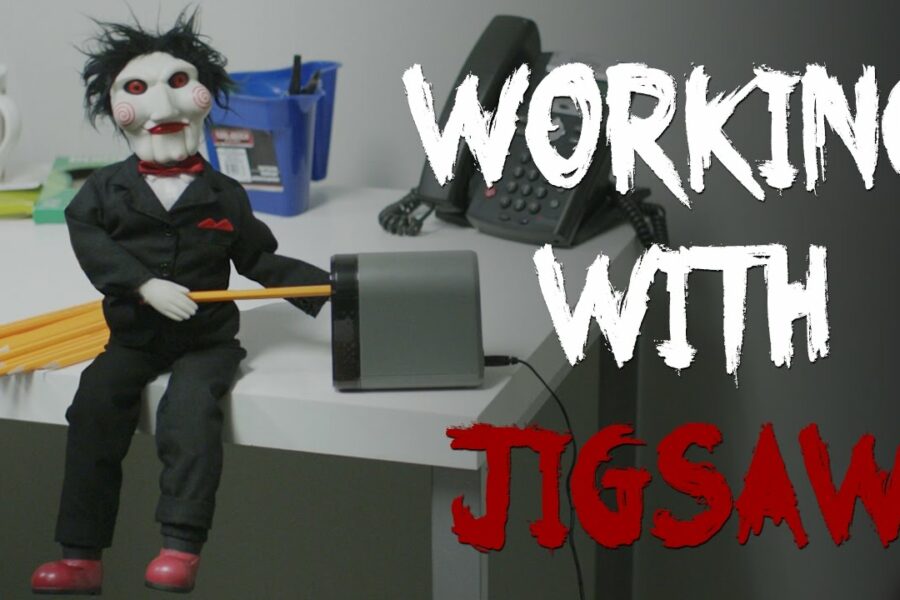Michael Dlugosch works as a Senior Consultant at Kwantic Oy, a Web Analytics startup company in Helsinki/Finland.
In this final part of the Michael Dlugosch talks about Sloth, the last of the Digital Project Management deadly sins. It deals specifically with the constant struggle Digital Project Managers have when trying to allocate resource to their projects only to discover there is none available.
7. Sloth – “We don’t have more resources!”
As Sam Barnes comprehensively covered in his recent article “Digital Projects: How to keep the peace when making decisions”, one of the saddest facts in a Digital Project Manager’s life is indeed the multitude of expectations they to deal with, for example:
- The client expects your organisation to be flexible enough to catch up with a five day delays in material preparation without any effect on the deadline
- Your Accounting department expects that they can issue this phase’s invoice as planned before to ensure the cash flow
- Your HR people are expecting you to make precise resource allocations for projects with an unknown scope, with a slipping deadline, and with a shrinking budget
But no matter what pressure you are under, please don’t ever give this article’s headline quote of “We don’t have the resources!” out to any of your clients! If you do, you will literally destroy the agency’s reputation that your Account Manager has built up over the years with his bare hands.
Here are two reasons why you should refrain from saying it:
- You will ruin your reputation as you’re probably lying without even realising it!
- One of your most important tasks is to keep your business away from the client
Of course your company has more resources! It will almost certainly be just a fraction of your agency’s workforce that you have allocated for your digital project so far. As soon as more than one digital project is handled at your company at one time there are more resources. The sad and brutal truth is that you probably do have the resource in-house, but just can’t access them or allocate them to your tasks – your organisation simply wouldn’t allow that to happen! So, admitting that you can’t get any more resources other than the ones you have assembled as a workforce on their project is a bad thing to do. Just ask yourself the following question:
As for keeping your business away from the client, consider this example.
If you bring your car to a car repair shop – you don’t really expect the clerk to tell you intimate details about the workload of his staff, right? All you want to get is your car repaired. And thus you may accept the clerk saying: “Sorry. For this week we are already full. But you could bring in your car next Tuesday at 8 in the morning!” You really don’t expect any more information on the matter why you can’t get you car fixed before that.
The struggle for resources is one of the biggest challenges a Digital Project Manager will face. It is however not the client’s concern how your digital project staffing is addressed.
Dealing with resourcing issues
There are however a couple of techniques and replies which you can apply to situations where you are asked to stretch your project organisation beyond capability. They all boil down to the fact that it is essential for you to buy time, and to sequence the requests in a reasonable manner by constantly re-applying the distinction between urgent and important throughout a project.
If you have followed the advice assembled in this article so far you already have some good replies at hand to answer client requests about additional deliverables.
Several more re-usable digital project management snippets you may want to consider for any future resourcing situation include:
- “I would need to look into the implications on schedule and budget before I can give you confirmation on this matter.”
- Remember, all the tasks and phases are deeply intertwined!
- “Upon initial thought, it seems as if this request is enhancing the agreed functionality requirements. I’ll have this analysed by our technical experts first and get back to you.”
- Remember, a significant scope enhancement will ruin one or more of the Assumptions and/or Prerequisites under which the Digital Project Agreement has been issued originally and may result in filing a Change Request. Once clients see the price tag implied by their request, they may consider it “not that urgent/important“
- “I can only think of two people in my organisation that would have an instant answer to whether this is possible with the given system. Let me quickly see if I can contact any of them.”
- Grab your phone while saying that. Remember, you are representing a team of experts, giving everything to satisfy client’s needs as they emerge!
- “The team for this week is completely allocated with coping for the unpredicted delay in the provision of material. We can have a look at this request next Tuesday at 8 in the morning!”
- Remember to know where you and your team are with the tasks agreed and what is the most urgent thing, as opposed to important, to take care of is essential
For every additional task that ends up on your project team’s plate you have to consider one or two possible ways to deal with it. It depends a lot on the project team and the organisation you are working for and it also depends on how your organisation rates the importance of the project or client in question, but below is some general advice on how to try and squeeze in unexpected work into an already packed schedule if need be.
First, you could squeeze the task into the existing schedules, ordering your team to work overtime. You can promise compensation or certain gratifications for those who are volunteering for the extra work. Or simply assign the task to someone whom you consider fit for the job. This principle can be referred to as heroic management e.g. “It’s a shitty job – but somebody has to do it!”
Secondly, you could count on the advice and ingenuity of your project team. Make the task description as clear as you can and involve your project team in solving the matter. Discuss openly what other tasks can be shuffled around, postponed or distributed to more shoulders?
Is the new task truly a specialist’s task – or could anybody work on it? How would the team rate the chances to get the additional work equally distributed with only a couple of additional hours for everybody? This principle can be referred to as post-heroic management e.g. “It’s an inconvenience which forces us to re-shuffle already allocated tasks in a smart way!”
Last but not least, it largely depends on what kind of personality you are. If you are not able to contribute hands-on to the project (as you may not know how to operate a text editor, Adobe Photoshop, or a Content Management System) – you can always try to learn these things from your project team members and do the job yourself.
If you are not willing to contribute hands-on to the project because you do not consider this being a part of your responsibility – you can always try to get another job. The choice is yours.
In summary
Digital project management, for which I sketched its shortcomings in the previous articles, will undoubtedly flop if it is carried out with the wrong focus and if it is aiming at the wrong goals.
The postulated deadly sins can and shall be, of course, all interpreted as examples of individual failure. In digital projects, I have seen otherwise reasonable Digital Project Managers being caught in selfish traps because they pig-headedly insisted on having the exclusively correct situation assessment and response for a particular question, issue, or project stage.
In the current economic climate it can prove deadly for a whole web agency if the management doesn’t see the wood for the trees – and each of the postulated deadly sins can easily obstruct the view on more important issues.
Digital project management is far more a continuous business re-engineering strategy than simply the completion of pre-defined and well formulated task lists with known time, money, and competence allocations.
It requires, following one thought from the German sociologist Dirk Baecker, a type of management which sees its heroism no longer at the disposal of resources and the willingness to fight offending or unreasonable customer demands, but which requires serendipity for the factual and social dimensions of the organisation of work and the distribution of shared responsibility which comes along with that.
We are heading towards an age of post heroic management, for which two aspects seem essential to me:
- The Digital Project Manager’s ability to let his personal motivations, goals and rewards fade into the background, and…
- Each team member’s ability to re-think their own contribution beyond a structure of assessment, delivery and hierarchy
This concludes the Digital Project Management: Seven Deadly Sins series. A big thank you to Michael for writing this incredibly extensive and enlightening article which has certainly taught me a thing a thing or two and I hope you feel the same too.









love the naming Post Heroic MGMT, and thanks for the insights, as an indie developer (ie.working with other freelancers) your snippets help a lot.
@Pol, glad you enjoyed the series :)